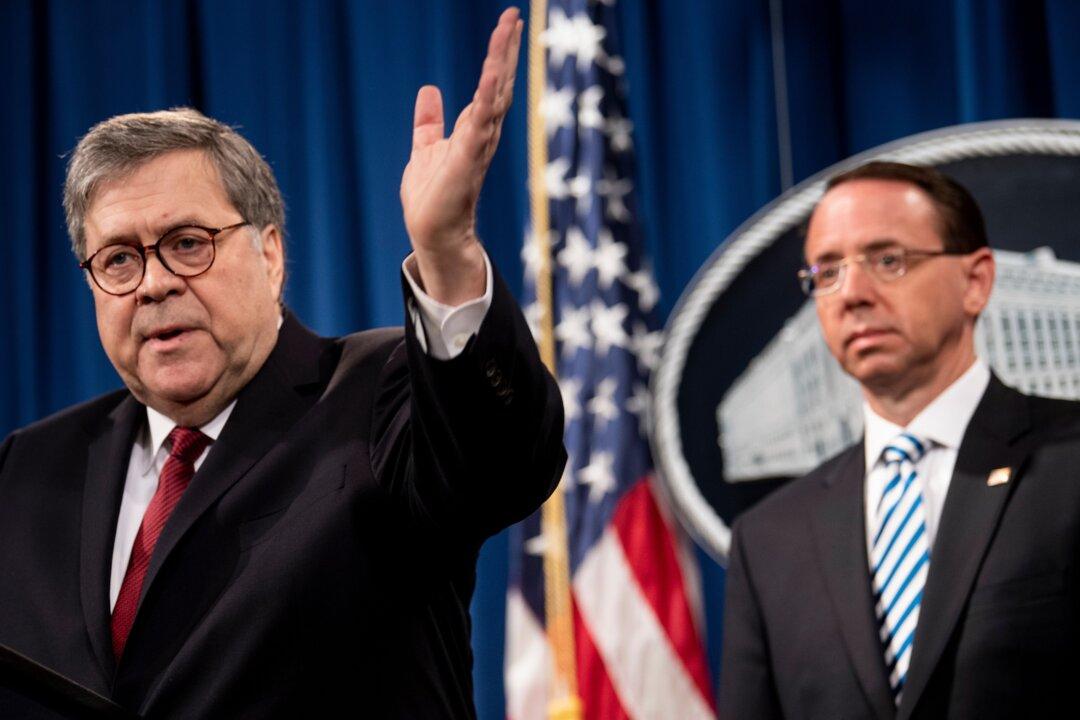Attorney General William Barr said he will release two versions of special counsel Robert Mueller’s report in an effort to accommodate congressional requests.
The Justice Department released a redacted version of Mueller’s report just after 11 a.m. on April 18. The nearly 500-page report details how the special counsel concluded that there was no collusion between the Trump campaign and Russia to influence the 2016 presidential election.




